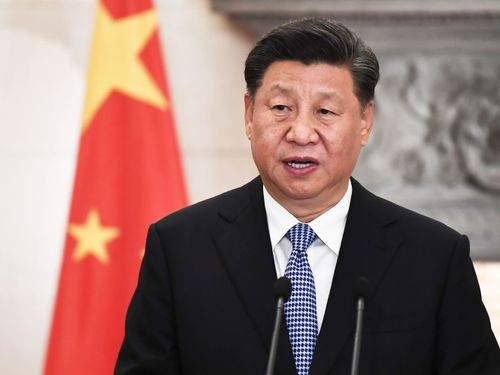Wars are usually seen to have a negative impact on a nation's economy. However, a case study of China's economy since the Russia-Ukraine invasion challenges this notion.
China's shared border with Russia has facilitated an economic boost, resulting in a $200 billion increase in trade between Russia and China alone. This is a significant achievement for the country, which was not expected until 2024.
As a result of this increased export rate, warehouses and a 20-storey office building were constructed on the border town of Heihe to manage the demand during the summer months.
Last year, one of the truck dealerships in China experienced a 200% increase in their annual turnover, all thanks to Russian customers who frequented their business.
Over the past 11 months, China has become the go-to source for everything Russia needs, especially since it stopped buying from the West.
In return, China has been buying oil and natural gas from Russia, albeit at discounted rates, while importing most of its consumer goods into the country. Nowadays, it is rare not to find Russian chocolates and sausages in most city supermarkets.
China’s New Alliance With Russia May Come At A Cost The Country Seems Willing To Pay
Since China became a huge beneficiary of the Russian-Ukraine war, the country has continuously affirmed its interest in the new alliance formed by both parties.
First, with the media’s intentionality in promoting Russia’s propaganda in the country and other parts of the globe where China holds influence, and the streak of social media influencers who take to their page to gush about their love for Russian culture by posing in Russian outfits.
In a meeting held by China’s President Xi Jinping with Russian Prime Minister Mikhail Mishustin last Wednesday in Beijing, he explained that both countries share a mutually exclusive relationship that would protect the interest of the two nations.

“Maintaining and well developing China-Russia relations is a strategic choice made by both sides based on the fundamental interests of the two peoples,” he said.
However, China’s decision to partner with Russia despite opposition from America and other European countries may mean a potential economic risk for the country despite the current economic boom.
In February 2022, China submitted a request to America and other European countries to import a critical need from Russia. However, due to the Russian-Ukrainian invasion that had already started, these countries refused to comply with China's request.
Despite this, China insisted on maintaining its ties with Russia and being a major supplier to the country. They argued that they should not be forced to take sides with European countries against Russia and should be free to do business with them, even if it meant risking their other close economic ties.
What happens if the seemingly strong alliance with Russia becomes threatened in the future and China can no longer find solace with the other nations it cut ties with as an act of support to Russia?
It is uncertain how long this new friendship will survive but it is undoubtedly one of the most innovative economic moves by the country as the increased demand for vehicles by the Russian market has ranked China the world’s largest automobile exporter over Japan this year.




